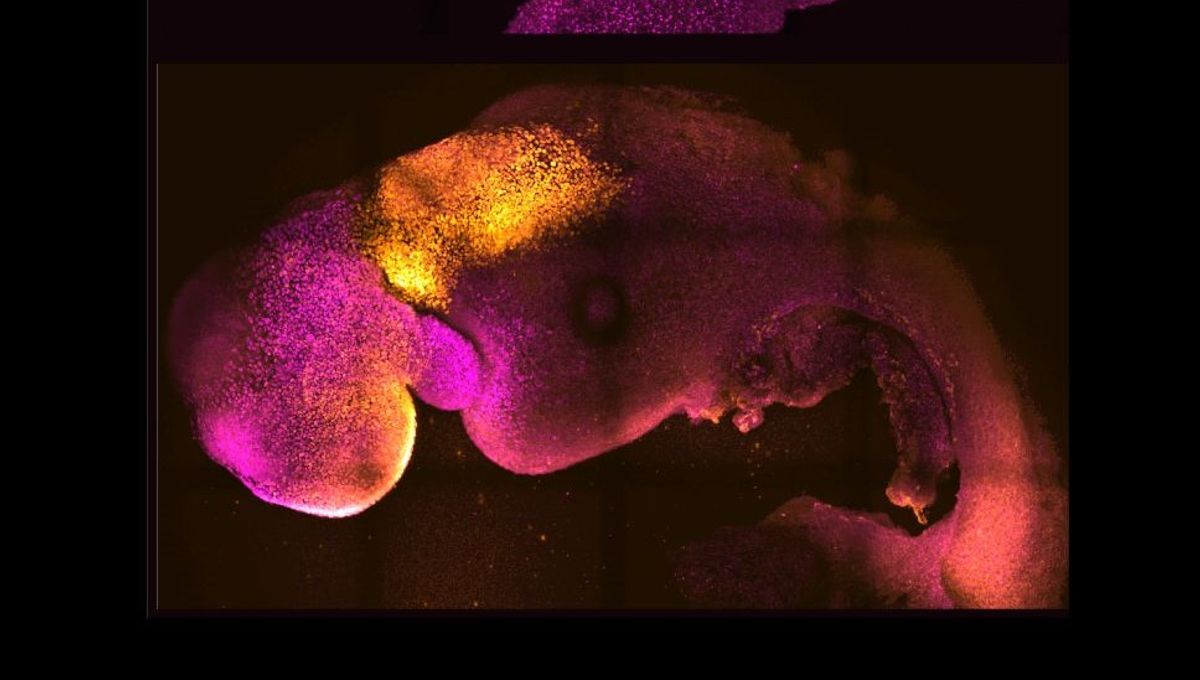
Researchers have created a “synthetic” mouse embryo – without using eggs or sperm – that has a beating heart, a brain, and the potential to develop all the other organs of the body. The embryos, grown from stem cells, lasted for several days and reached a point of development that has never been achieved before.
Published in the journal Nature, the study could help advance fertility research and may even allow us to develop synthetic human organs for transplantation in the future.
Earlier this month, researchers from Israel published similar findings, successfully growing synthetic mouse embryos from stem cells for 8.5 days.
“These two papers, they empower one another,” Martin Pera, a stem-cell biologist at the Jackson Laboratory Center for Precision Genetics, who was not involved in either study, said in a statement. “Two very skilled groups can really produce rather similar results independently.”
In early mammalian embryos, there are three types of stem cells: one goes on to become the body’s tissues, while the other two support development. One of these supportive groups of stem cells will become the placenta and the other the yolk sac, which is where the embryo grows and gets its nutrients. These three types of cells “communicate” with each other by sending chemical and mechanical signals that dictate how the embryo develops.
The authors of the latest paper mimicked these natural processes in the lab by culturing stem cells of each type, bringing them together in the right proportions with optimal environmental conditions. They also manipulated gene expression, allowing the cells to self-assemble into an embryo that then went through the early stages of embryonic development until it had a beating heart, yolk sac, and evidence of a brain.
The embryos lasted just 8.5 days due to defects – but reached the point where the entire brain, including anterior portions, started to develop. This sets these synthetic embryos apart from other studies as it marks the furthest point of development that has been reached in such models.
“Our mouse embryo model not only develops a brain, but also a beating heart, all the components that go on to make up the body,” lead author Magdalena Zernicka-Goetz, Professor in Mammalian Development and Stem Cell Biology in Cambridge University’s Department of Physiology, Development and Neuroscience, said in a statement.
“It’s just unbelievable that we’ve got this far.”
This stage of development is a pivotal point at which many pregnancies fail, Zernicka-Goetz explained. To be able to now observe it in synthetic embryos could be a game-changer:
“This period of human life is so mysterious, so to be able to see how it happens in a dish – to have access to these individual stem cells, to understand why so many pregnancies fail and how we might be able to prevent that from happening – is quite special.”
The advances made in this new study could also have implications for scientific research. We could one day see a move away from animal models in favor of synthetic ones, for example when testing new drugs.
“The next milestone in this field very likely will be a synthetic stem-cell based human embryo,” Jianping Fu, a bioengineer at the University of Michigan, who was not involved in the study, said. However, this is still a long way off and could throw up some ethical complications.
Source Link: “Synthetic” Mouse Embryo Develops Brain And Beating Heart For First Time Ever